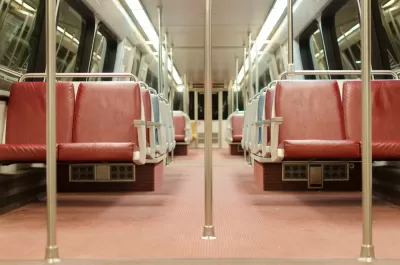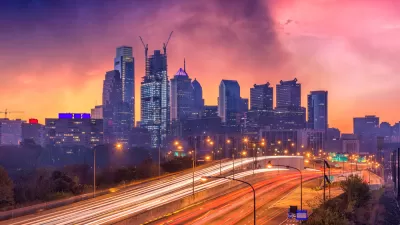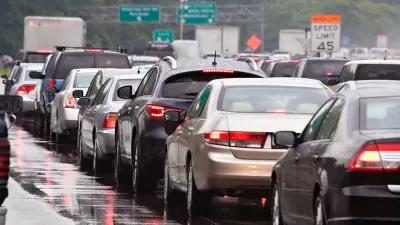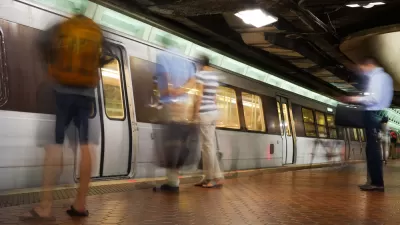The news from the most recent American Community Survey data isn't entirely bad for advocates hoping that Americans will switch to more efficient, less impactful forms of commuting.

Romic Aevaz shares analysis of one-year estimates of commutes from the 2018 American Community Survey, reporting increasing teleworking and declining in driving alone.
"Data from the newly released 2018 American Community Survey shows that telework continued its upward trend, while driving alone to work trended slightly downward. Several regions that had a reduction in the share of workers driving alone had a corresponding increase in biking and walking to work.'
According to Aevaz, working from home has surpassed public transit commuting for the second year in a row. Really, driving alone is mostly the same, having declined only slightly from 76.4 percent mode share nationally in 2017 to 76.3 percent in 2018. The figure has declined from 76.5 percent in 2014. Public transit commutes have declined from 5.2 percent in 2014 to 4.9 percent in 2018, according to the data.
There is a lot more nuance available at the regional level, as detailed by tables created for the article. Aevaz explains the big takeaways from regional data thusly:
Of the 15 regions profiled, the share of workers driving alone decreased in the past year in 10 of the regions and 9 of the core cities. The most substantial drops were in Seattle (-2.8% in the city, -1.5% regionally), San Francisco proper (-2.1%), Detroit (-2% in the city, -1.1% in the region), Philadelphia proper (-1.5%), and San Diego proper (-1.5%). The most substantial increase was in Houston (1.2% in the city, 0.6% in the region). In a few cities, the share of commuters driving alone to work moved noticeably in opposite directions in the city proper and broader region. In Atlanta and San Francisco, the share of workers driving alone dropped in the city limits (almost 1 point in Atlanta, two points in San Francisco) but increased in the region as a whole.
There are a lot more details in the article, as well as a promise of five-year data to come in December.

Alabama: Trump Terminates Settlements for Black Communities Harmed By Raw Sewage
Trump deemed the landmark civil rights agreement “illegal DEI and environmental justice policy.”

Planetizen Federal Action Tracker
A weekly monitor of how Trump’s orders and actions are impacting planners and planning in America.

The 120 Year Old Tiny Home Villages That Sheltered San Francisco’s Earthquake Refugees
More than a century ago, San Francisco mobilized to house thousands of residents displaced by the 1906 earthquake. Could their strategy offer a model for the present?

In Both Crashes and Crime, Public Transportation is Far Safer than Driving
Contrary to popular assumptions, public transportation has far lower crash and crime rates than automobile travel. For safer communities, improve and encourage transit travel.

Report: Zoning Reforms Should Complement Nashville’s Ambitious Transit Plan
Without reform, restrictive zoning codes will limit the impact of the city’s planned transit expansion and could exclude some of the residents who depend on transit the most.

Judge Orders Release of Frozen IRA, IIJA Funding
The decision is a victory for environmental groups who charged that freezing funds for critical infrastructure and disaster response programs caused “real and irreparable harm” to communities.
Urban Design for Planners 1: Software Tools
This six-course series explores essential urban design concepts using open source software and equips planners with the tools they need to participate fully in the urban design process.
Planning for Universal Design
Learn the tools for implementing Universal Design in planning regulations.
Clanton & Associates, Inc.
Jessamine County Fiscal Court
Institute for Housing and Urban Development Studies (IHS)
City of Grandview
Harvard GSD Executive Education
Toledo-Lucas County Plan Commissions
Salt Lake City
NYU Wagner Graduate School of Public Service





























